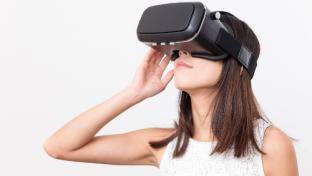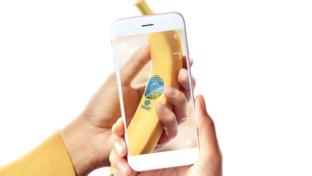What to Expect in Grocery Technology in 2019
Grocers have long been the laggards in the retail technology game. That’s understandable, given the channel’s longtime traditional nature, narrow margins and reluctance to make huge investments in risky areas.
Take a look at what’s happened over the past year, however, and you’ll see that grocers have made tremendous strides and are laying the foundations for further technological advances in the coming year. This year alone saw several tremendous innovations adopted, including, but not limited to:
Read Our 5 Predictions of How Grocery Technology will Transform in 2019
- Part One: The Year Grocers Bridge the Digital and Physical
- Part Two: The Year Grocers Crack the Code to Ecommerce Profitability
- Part Three: The Year Grocers Make the Shopping Experience Mobile-Centric
- Part Four: The Year Grocers Bring Endless Aisles In-Store
- Part Five: The Year Grocers Connect Everyday Activity and Ecommerce
Cashierless, Scan-Free Shopping
Amazon debuted the Amazon Go format to the public in Seattle and has since expanded it to several stores in such cities as Chicago and San Francisco, with 3,000 locations planned to open over the next few years. The chain uses “just walk out” technology, which employs computer vision, sensor fusion and deep learning to automatically detect when products are removed from, or placed back on, shelves. Shoppers scan in via a dedicated app, just walk out upon taking everything they wish to buy, and then receive a digital receipt afterward. Other similar grab-and-go stores that have opened in recent months include Standard Market, powered by artificial-intelligence company Standard Cognition, and a concept powered by the Zippin checkout-free software platform, both in San Francisco.
Robots
Midwestern grocer Schnuck Markets expanded to at least 15 locations its in-store autonomous-robot pilot in which Tally, an innovation from Simbe Robotics, traverses the store to detect out-of-stocks, pricing errors and even hazards. This frees up time for in-store associates to handle more important, customer-facing tasks. Other grocers employing similar technology include Ahold Delhaize USA at its Food Lion, Giant and Martin’s stores, and Target.
Automated Fulfillment
The Albertsons Cos. revealed a plan to automate and save ecommerce fulfillment costs by embracing robotics and artificial intelligence (AI). The grocer is partnering with Waltham, Mass.-based grocery technology company Takeoff Technologies to help simplify the online grocery shopping experience through a “hyperlocal” automated fulfillment center, which also helps lower order-assembly and last-mile costs. The news follows similar announcements from the Kroger Co. and Walmart.
Autonomous Delivery Vehicles
Kroger began piloting a grocery delivery program that uses autonomous vehicles to fulfill online orders, teaming with autonomous-vehicle provider Nuro to make the convenience of grocery delivery accessible and affordable for customers everywhere. Through the partnership, which began in Scottsdale, Ariz., customers using Kroger’s ClickList grocery ecommerce system and Nuro’s mobile app place same-day delivery orders, which are fulfilled by the latter’s fleet of on-road autonomous vehicles. Other grocers entering the autonomous delivery space include Walmart, through a partnership with Ford; AI-powered Bay Area “micro-grocer” Farmstead; Oklahoma City grocer Buy For Less; and Robomart, another Bay Area ecommerce grocer.
This short four-point list doesn’t even include what grocers have been doing in terms of developing, employing or expanding mobile-centric shopping experiences; voice ordering; shoppable recipes; boosted searches for CPG partners; and more. Simply put, in 2018, there was far more news in the field of grocery technology than ever before. That means there will likely be even more news in 2019.
While we can’t tell you every single activity to expect from each grocer, Progressive Grocer’s editors have picked five key areas – revealing one per day this week – to keep close watch on, so you’re ready for when the big stories do arise. Check out the following:







